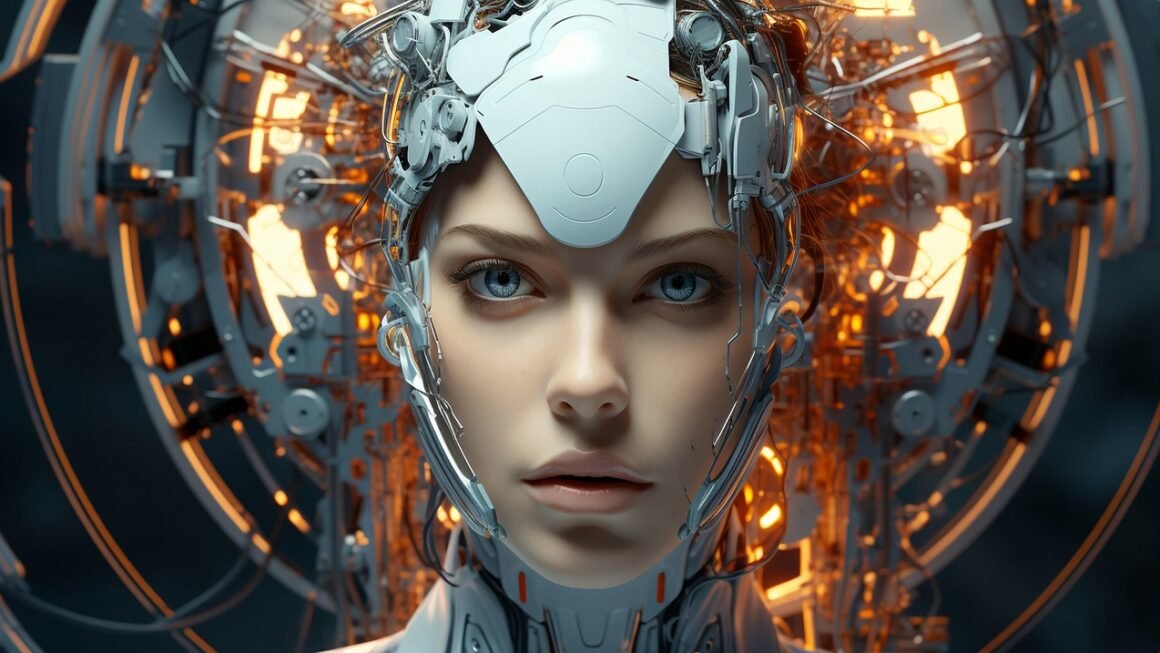Intelligent agents are rapidly transforming the technological landscape, moving beyond simple automation to systems that can perceive, learn, and act autonomously. From personalized recommendations on your favorite streaming service to self-driving cars navigating complex city streets, intelligent agents are becoming increasingly pervasive. This post dives into the world of intelligent agents, exploring their types, architectures, applications, and future potential, equipping you with a comprehensive understanding of this exciting field.
Understanding Intelligent Agents
Intelligent agents are autonomous entities, whether software or hardware, that perceive their environment through sensors, process information, and act upon that environment through actuators to achieve specific goals. Unlike passive systems, they exhibit a degree of intelligence by adapting to changes, learning from experience, and making decisions independently.
Defining Key Characteristics
Several key characteristics define an intelligent agent:
- Autonomy: The agent operates without direct human intervention.
- Perception: It can sense and understand its environment through sensors.
- Reasoning: It can process information and make informed decisions.
- Learning: It can improve its performance over time through experience.
- Action: It can act upon its environment through actuators.
- Goal-Oriented: It is designed to achieve specific objectives or goals.
Different Types of Intelligent Agents
Intelligent agents come in various forms, each suited for specific applications:
- Simple Reflex Agents: These agents react directly to percepts based on predefined rules. They have no memory of past states. Example: A thermostat maintaining a set temperature.
- Model-Based Reflex Agents: These agents maintain an internal model of the world, allowing them to make decisions based on past experiences and predicted outcomes. Example: A robot vacuum cleaner navigating a room.
- Goal-Based Agents: These agents have a specific goal in mind and make decisions to achieve that goal. Example: A route-planning application finding the shortest path to a destination.
- Utility-Based Agents: These agents maximize their utility, considering factors like cost, risk, and benefit. Example: An investment advisor recommending stocks based on risk tolerance and potential return.
- Learning Agents: These agents can learn from their experiences and improve their performance over time. Example: A spam filter learning to identify new spam emails.
Architecture of Intelligent Agents
The architecture of an intelligent agent defines how it interacts with its environment and makes decisions. Common architectures include:
Agent Functions
An agent function maps percept sequences to actions. It represents the agent’s behavior and how it responds to different situations. It can be implemented as a look-up table, but for complex environments, more sophisticated approaches are needed.
- Simple Functions: Use predefined rules based on current percepts.
- Complex Functions: Involve reasoning, planning, and learning.
- Learning Functions: Adapt over time based on feedback and experience.
Agent Programs
An agent program is the concrete implementation of the agent function. It describes how the agent operates internally and how it processes information.
- Components: Typically include sensors, actuators, internal state, and a decision-making algorithm.
- Programming Languages: Can be written in various languages like Python, Java, or C++.
- Frameworks: Frameworks like TensorFlow, PyTorch, and scikit-learn facilitate the development of intelligent agents.
Example: A Simple Cleaning Robot
Consider a simple cleaning robot. Its architecture might include:
- Sensors: A camera and distance sensors to perceive its environment.
- Actuators: Wheels and a vacuum cleaner to move and clean.
- Internal State: A map of the room and a battery level indicator.
- Decision-Making Algorithm: Rules for navigating the room, avoiding obstacles, and cleaning dirty areas.
Move forward until an obstacle is detected.
Turn away from the obstacle.
Vacuum the area.
Return to the charging station when the battery is low.
Applications of Intelligent Agents
Intelligent agents are finding applications across diverse industries, transforming how we live and work.
E-commerce and Recommendation Systems
- Personalized Recommendations: Agents analyze user behavior and preferences to recommend relevant products or content. Amazon and Netflix use these extensively. Studies show that personalized recommendations can increase sales by up to 30%.
- Price Optimization: Agents dynamically adjust prices based on market conditions, demand, and competitor pricing.
- Customer Service Chatbots: Agents provide instant customer support and answer frequently asked questions.
Healthcare
- Diagnosis Support: Agents analyze medical images and patient data to assist doctors in making accurate diagnoses.
- Personalized Treatment Plans: Agents develop customized treatment plans based on patient history, genetics, and lifestyle.
- Remote Patient Monitoring: Agents track patient health data remotely and alert healthcare providers to potential issues.
Autonomous Vehicles
- Self-Driving Cars: Agents perceive the environment, plan routes, and control vehicle movement.
- Drone Delivery: Agents navigate airspace and deliver packages autonomously.
- Traffic Management: Agents optimize traffic flow and reduce congestion.
Finance
- Algorithmic Trading: Agents execute trades based on predefined rules and market conditions.
- Fraud Detection: Agents identify and prevent fraudulent transactions.
- Risk Management: Agents assess and manage financial risks.
Smart Homes
- Automated Lighting and Temperature Control: Agents adjust lighting and temperature based on occupancy and preferences.
- Security Systems: Agents monitor for intrusions and alert authorities.
- Voice Assistants: Agents respond to voice commands and control smart devices.
Developing Intelligent Agents: Key Considerations
Developing effective intelligent agents requires careful planning and execution.
Choosing the Right Architecture
- Consider the Complexity of the Environment: Simple reflex agents are suitable for simple environments, while more complex architectures are needed for complex environments.
- Define Clear Goals: Agents need to have clear and well-defined goals to function effectively.
- Balance Autonomy and Control: Determine the level of autonomy required for the agent to achieve its goals while maintaining appropriate levels of human oversight.
Training and Evaluation
- Use Realistic Data: Train agents on realistic data that reflects the environment in which they will operate.
- Employ Appropriate Evaluation Metrics: Use metrics that accurately measure the agent’s performance and effectiveness.
- Iteratively Refine the Agent: Continuously refine the agent based on feedback and evaluation results.
Ethical Considerations
- Address Bias: Ensure that agents are free from bias and do not discriminate against any group.
- Ensure Transparency: Make the agent’s decision-making process transparent and understandable.
- Protect Privacy: Protect user data and ensure compliance with privacy regulations.
Future Trends in Intelligent Agents
The field of intelligent agents is rapidly evolving, with several key trends shaping its future.
Advancements in Artificial Intelligence
- Deep Learning: Deep learning algorithms are enabling agents to learn from vast amounts of data and perform complex tasks.
- Reinforcement Learning: Reinforcement learning is allowing agents to learn through trial and error, improving their performance over time.
- Natural Language Processing (NLP): NLP is enabling agents to understand and respond to human language.
Integration with IoT Devices
- Smart Cities: Agents will manage infrastructure, optimize resource utilization, and improve citizen services.
- Industrial Automation: Agents will automate manufacturing processes, improve efficiency, and reduce costs.
- Connected Homes: Agents will control smart devices, personalize experiences, and enhance home security.
Increased Autonomy and Collaboration
- Autonomous Robots: Robots will perform complex tasks in various environments, from factories to hospitals.
- Collaborative Agents: Agents will work together to solve complex problems and achieve common goals.
- Human-Agent Collaboration: Humans and agents will work together synergistically, leveraging their respective strengths.
Conclusion
Intelligent agents are poised to revolutionize numerous aspects of our lives, driving innovation and efficiency across diverse sectors. As AI continues to advance, we can expect intelligent agents to become even more sophisticated and integrated into our daily routines. By understanding their principles, architectures, and potential applications, we can prepare for a future where intelligent agents play a crucial role in shaping our world. Embrace the potential, be mindful of the ethical implications, and explore the possibilities that intelligent agents offer.



